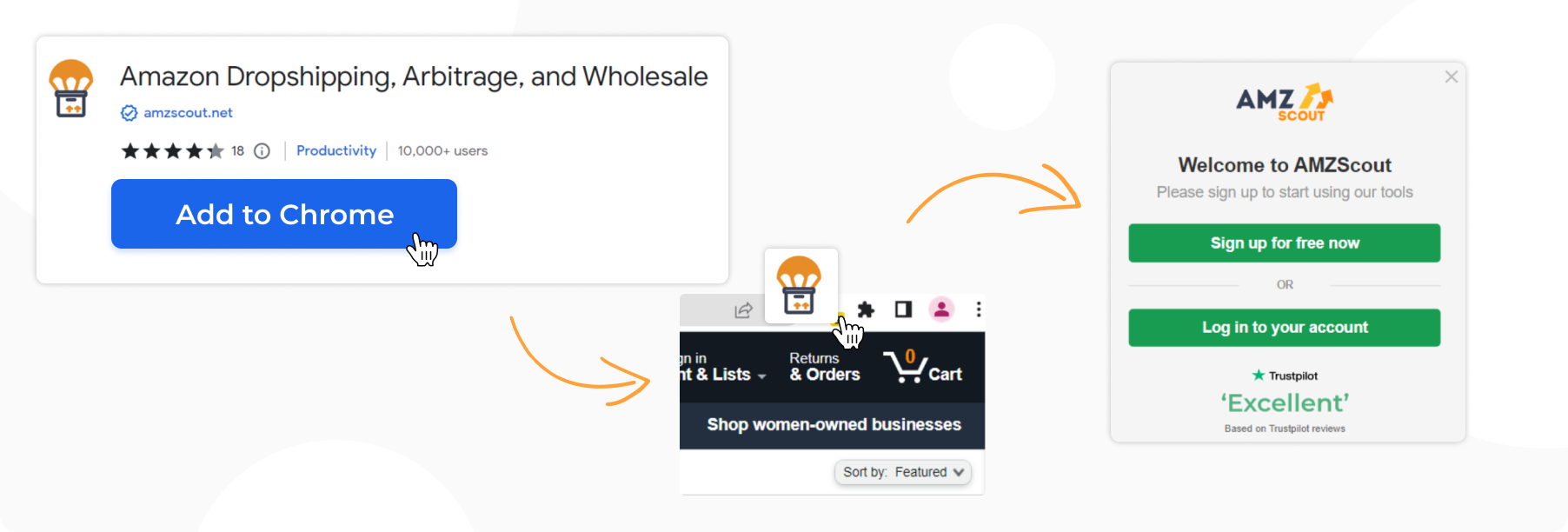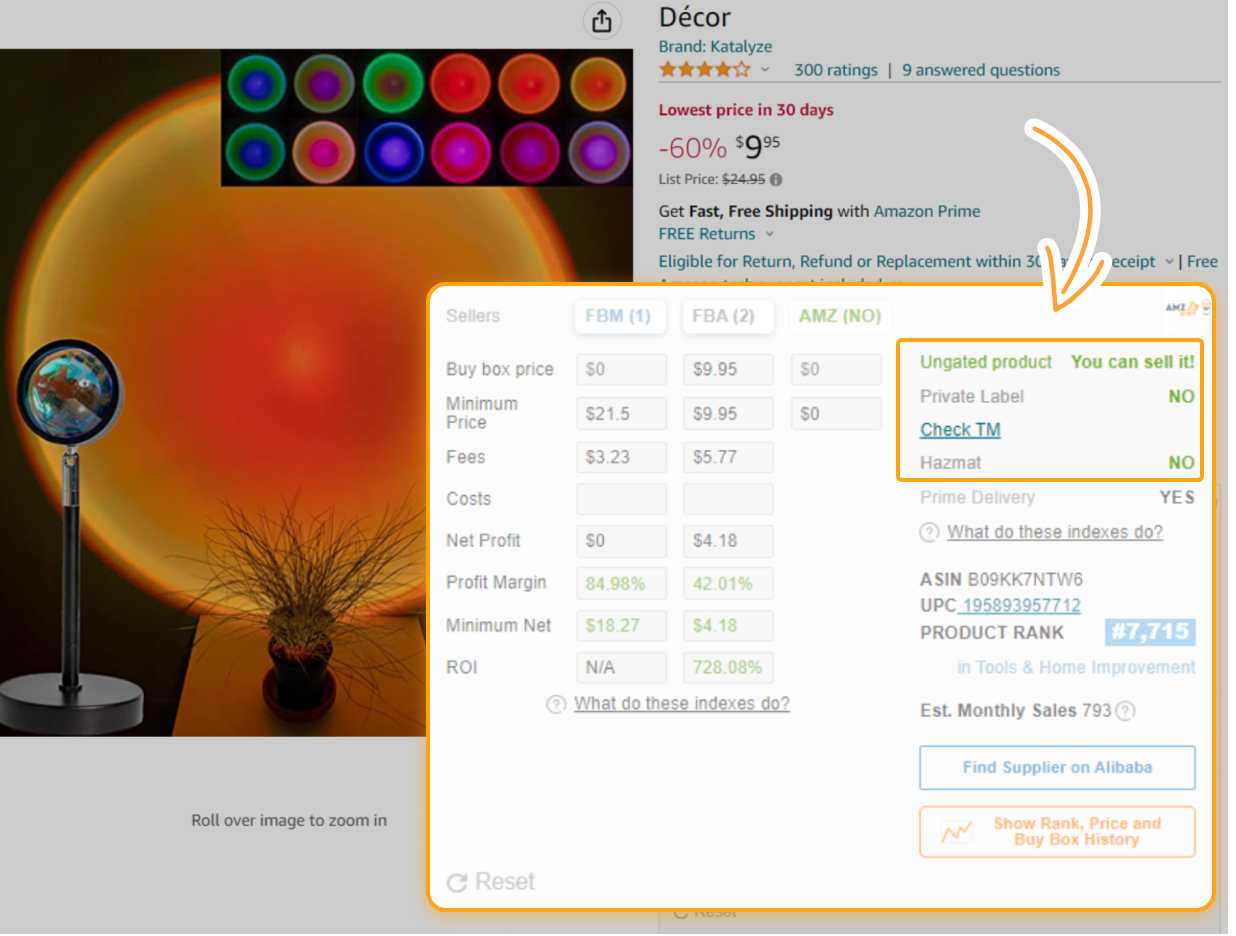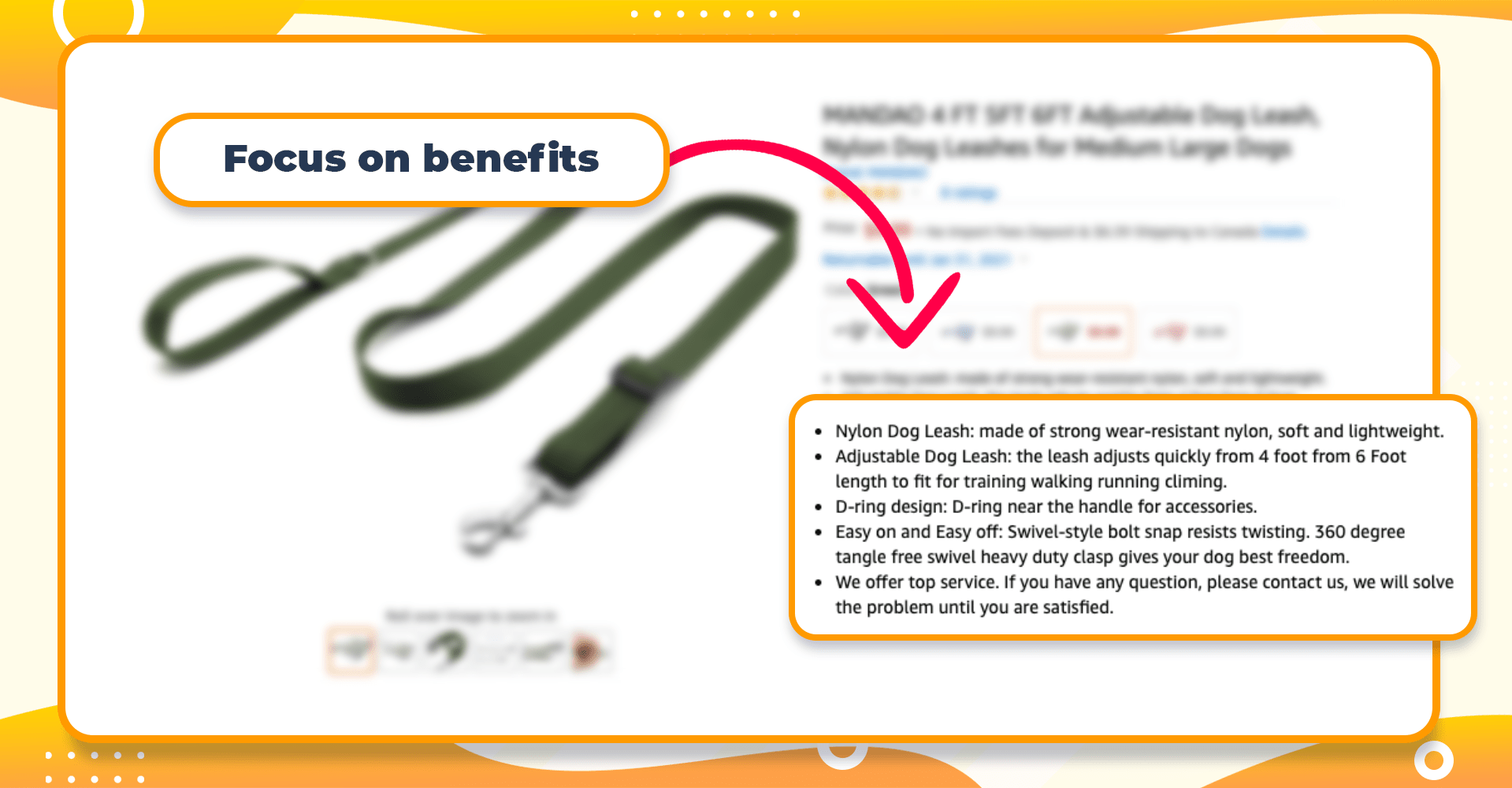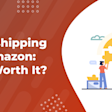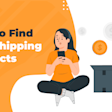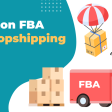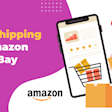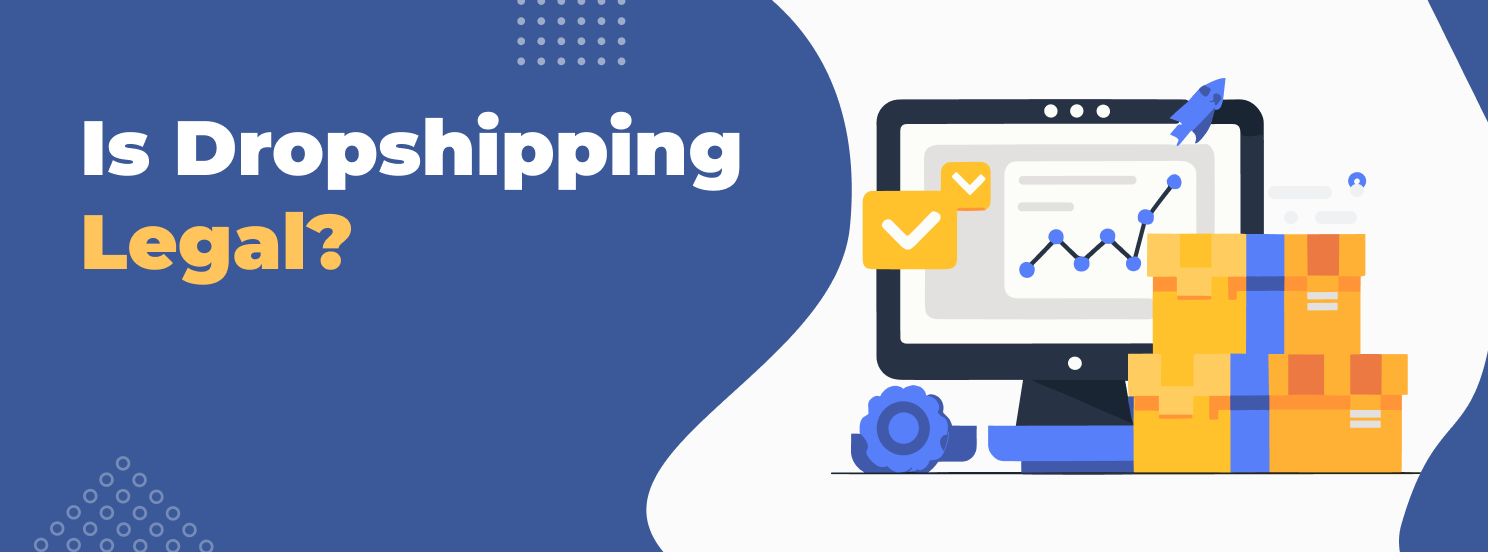
Is Dropshipping Legal? Guide to Running a Legit and Safe Business
Many sellers who are new to dropshipping may question the legality and ethics of this business model. In this article, you'll learn the truth about dropshipping by examining its legal nuances, and find out how to dropship products in a legal and safe manner.
Table of contents
Why Dropshipping Can Be Risky
Dropshipping is a retail method where a seller doesn't keep the products they sell in stock. Instead, when a seller sells a product, they purchase the item from a third party and have it shipped directly to the customer. While dropshipping offers lower startup costs and flexibility, it's essential to understand any potential legal issues.
Traditional dropshipping can entail certain risks and problems, including:
Violating e-commerce platform policies.
Selling counterfeit or trademarked products, which is illegal.
Using misleading marketing tactics.
However, if sellers adhere to all of the rules and guidelines, dropshipping can be conducted legally.
Where You Can Dropship Legally
The first nuance of a drop shipping business is choosing a suitable platform. Most marketplaces or e-commerce sites allow dropshipping, but it's crucial to comply with all of their specific rules. Below are some platforms where you can dropship products, and details on how the process works.
Your own website or Shopify store
Shopify explicitly supports dropshipping and offers integrations with several dropshipping apps (like Salehoo) to help simplify the process. When you set up your own website for dropshipping, you have full control over your operations, but you must also ensure that you comply with local business laws, consumer rights, and tax obligations.
For both options, it’s crucial to source products from reputable suppliers to avoid issues, such as selling counterfeit or unlicensed merchandise.
Social media platforms
It is legal to dropship and advertise dropshipping products on social media platforms. Social media sites (like Facebook, Instagram, and Pinterest) have specific e-commerce features that support dropshipping, such as Facebook Marketplace and Instagram Shopping. To use these features, you must adhere to each platform’s advertising policies, which typically require transparency about your business and the products you sell.
Online marketplaces
Dropshipping is generally allowed on many online marketplaces, including eBay, Etsy, and Amazon, but each platform has its own specific rules and requirements. Let’s take a look at three of the most popular platforms.
eBay: Sellers are allowed to dropship on eBay, as long as the products are obtained from legitimate wholesalers and not from other retail marketplaces. eBay insists that sellers manage their inventory and ensure timely delivery to maintain customer satisfaction and comply with their selling policies.
Etsy: It is legal to dropship on Etsy, but under strict conditions. Etsy's policies state that sellers must be transparent about their production partners and ensure that all items are handmade, vintage, or craft supplies. Dropshipping generic, mass-produced items without any personal creative input is not allowed.
Amazon: Dropshipping is legal on Amazon. Sellers must be the seller of record for their products, be responsible for accepting and processing customer returns, and ensure that their supplier does not package orders with any materials that contain the supplier's name. Amazon also prohibits purchasing products from another retailer and having that retailer ship directly to customers.
These are some of the legal factors to consider when you start your dropshipping business. Next, we’ll explore the steps of dropshipping correctly.
How to Dropship on Amazon Legally
Amazon serves as an excellent starting point for new sellers. Using Amazon as an example, we'll discuss how to implement legal dropshipping practices effectively. Below, you'll find a guide on how to conduct dropshipping legally according to Amazon's policies.
1. Find an appropriate and profitable product. Some items may not be allowed for reselling, or could have specific restrictions. It's also crucial to choose products that are not only permissible but also profitable. To ensure the success of your business, use research tools to help you identify products that align with these criteria.
Install and add the AMZScout Amazon Dropshipping, Arbitrage, and Wholesale Extension on your Chrome browser.
Enable the extension: Go to the Amazon website, navigate to the page for a specific product you are interested in, and launch the extension.
Check for any red flags: See if the item is part of a private label (PL), gated, or a HAZMAT product. If it is a PL product, you can’t sell this product without brand approval. If it’s from a gated category, you will need to get additional permission to resell the product. It's also preferable not to sell any products that contain hazardous materials when you start dropshipping so you can avoid the need for extra certificate approval from Amazon.
Check the number and types of other sellers offering the product: As you scan the other sellers, see if Amazon is among them. Ideally, a product will have fewer sellers (FBM or FBA) with ‘No’ indicated for Amazon.
Calculate the profitability in the calculator: Enter your potential costs to calculate the NET profit for the product.
2. Find a reliable supplier. When looking to find a reliable supplier for Amazon dropshipping, you can start by searching Google. To choose a legit and trustworthy supplier from a wide range of suppliers in various directories, check for these criteria and suppliers who:
Can support Amazon dropshipping.
Offer high-quality products.
Have received many positive reviews.
Can give you lower costs and shipping fees.
Provide customer support.
3. Packaging. When the supplier packages products, they need to list you as the seller on all packing slips, invoices, external packaging, and other information provided in connection with the product. They also must remove any materials that identify a third-party dropshipper. Be sure to comply with all other terms of your seller agreement and applicable Amazon policies.
4. List your product. Now it’s time to list your products carefully through your Amazon Seller Central account. You can create new listings for these items, or you can add offers to existing listings in the Amazon store. When you create a listing, be sure to use relevant keywords in the title, description, and bullet points to make it SEO-optimized. You also need to upload high-quality images, and set your offer with the price, quantity, etc.
By carefully analyzing the supplier market and finding profitable products, you can start your dropshipping career on Amazon with ease.
General Practices for Legal Dropshipping
No matter where you sell, it's crucial to follow key practices that ensure legal compliance and smooth operations.
Adhere to all consumer protection laws. Ensure the quality and safety of goods delivered to consumers. Stay up-to-date on consumer rights and product safety regulations.
Handle taxes properly. If required, obtain a sales tax certificate from the state where you operate and submit your sales tax returns diligently.
Secure necessary licenses. Verify that you have the legal rights to sell your products. This may include obtaining business permits and sales tax permits.
Respect intellectual property. Avoid infringing on any trademarks, copyrights, and patents held by others. Ensure that all products are legitimately sourced and authorized for resale.
Conduct thorough research. Engage in comprehensive market analysis to help you identify profitable niches, vet suppliers for reliability, and perform competitor analysis to strategize effectively.
Maintain transparent supplier relations. Establish clear and open communication with suppliers to establish expectations, timelines, and quality standards, ensuring smooth transactions and minimizing potential disputes.
Establish clear customer policies. Develop detailed terms and conditions for your customers that include product descriptions, shipping policies, return procedures, and warranty information. This will allow you to manage expectations and reduce the likelihood of conflicts.
By mastering these best practices, you can manage your dropshipping business effectively and avoid legal or operational issues.
FAQ
While this article has aimed to answer the majority of the most common questions about dropshipping, here are a few additional FAQs to address any other potential concerns.
Do you need a business license to dropship?
You do not need a business license to sell products on Amazon. Technically you don’t need to create an LLC to start selling products online, but in general, in order to dropship or sell products online legally in the USA, you can also apply for an Employer Identification Number or a sales tax ID.
How old do you have to be to dropship?
Many dropshipping platforms and payment processors require individuals to be at least 18 years old to create an account or engage in financial transactions. If you’re under 18, it’s less likely that Amazon will allow you to start a dropshipping business.
Is dropshipping ethical?
The ethics of dropshipping largely depend on the seller’s commitment to fairness. Some criticize dropshipping as unethical because sellers might mislead buyers by shipping items directly from other markets without clear disclosure. However, others view it as a legitimate practice, similar to traditional retail where products are bought and sold for different prices. Ultimately, the issue of whether dropshipping is ethical or not depends on the seller's transparency, product quality, and customer service.
Is dropshipping safe?
Dropshipping can offer a variety of benefits (like low startup costs and flexibility), but it also carries risks, such as dealing with fraudulent suppliers, facing delivery issues, and navigating legal compliance. However, if conducted legally, by adhering to all relevant policies and connecting with reliable suppliers, dropshipping can be a secure and viable business model.
Is it legal to dropship branded products?
If you have an agreement with the brand owner and receive written permission to resell their brand name products, taking into account all legal regulations, dropshipping branded products without any issues can be feasible.
Conclusion
Dropshipping can be a legal and viable business option. Understanding the legal landscape, complying with regulations, and establishing transparent relationships with suppliers are essential components of ensuring a successful and lawful dropshipping venture. As with any business, the key to success lies in commitment to compliance and ethical practices, which will result in a positive experience for both the seller and the consumer.
